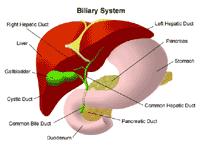What is hepatitis B (HBV)?
Hepatitis B is a serious infection of the liver caused by the hepatitis B virus. It can be mild and short-term, or it may be long-term and lead to chronic liver disease and liver failure in infants and young children.
The hepatitis B virus is spread from person to person through blood and body fluids, such as blood, semen, vaginal secretions, or saliva. Infants may also get the disease if they are born to a mother who has the virus. Infected children often spread the virus to other children if there is frequent contact. People who are likely to be exposed to hepatitis B are:
-
Babies born to mothers who have hepatitis B
-
Babies born to mothers who have immigrated from a country where hepatitis B is widespread, such as southeast Asia and China
-
Anyone in long-term care
-
Anyone who lives with someone with the virus
-
Anyone who requires kidney dialysis
-
Anyone who uses IV drugs, has multiple sex partners, or unprotected sex
About one-third of people with hepatitis B in the U.S. have an unknown source.
Why is hepatitis B a concern?
The younger the person, the greater the likelihood of staying infected with hepatitis B and having life-long liver problems, such as scarring of the liver and liver cancer.
Hepatitis B immunization
The hepatitis B vaccine is widely used for routine childhood immunization. Children currently get the first vaccine between birth and 2 months. The second vaccine is given at 1 to 4 months and the third vaccine at 6 to 18 months. The vaccine prevents hepatitis B infection.











